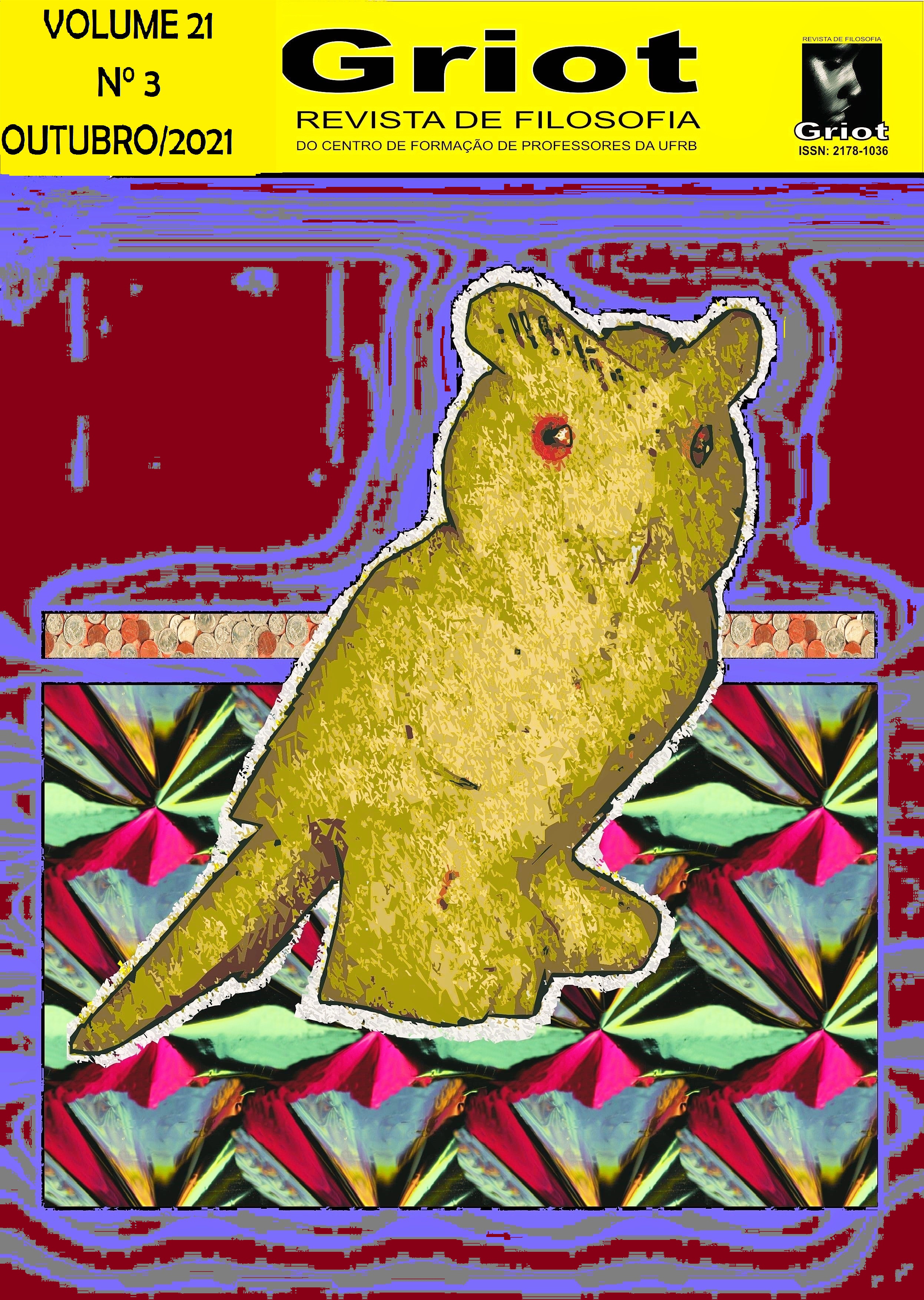The causal theory of memory: an introduction in philosophy of memory
DOI:
https://doi.org/10.31977/grirfi.v21i3.2456Keywords:
Causal Theory of Memory; Episodic memory; Memory traces; Causation; Discontinuism.Abstract
This paper is an introduction on the Causal Theory of Memory, one of the most discussed theories in philosophy of memory in the present days. We begin with Martin & Deutscher’s formulation of the theory, in which the authors present three criteria in order for a given mental state to be considered an instance of memory, amongst them, the famous causal criterion, which stipulates that a memory must be causally connected to the past experience. Subsequently, we discuss if these criteria are necessary and sufficient for memory and we present two theories that complement these criteria with an epistemic and a phenomenological criterion, i.e., the Causal Epistemic Theory and the Causal Autonoetic Theory. We then introduce the concept of memory traces, which are, according to Martin & Deutscher, the causal link between the memory and the past experience which created this memory; we present the model of traces as structural analogues and the model of distributed traces and discuss the problems which arise for each of these models of traces. Afterwards we focus on the concept of causality and present the Causal Procedural Theory, which offers a different conception of causality that does not focus on the memory traces, but on causal process itself. Lastly, we present the theory called Discontinuism, a theory about the relation between memory and imagination, which follows directly from the Causal Theory of Memory.
Downloads
References
BERNECKER, Sven. Memory: A Philosophical Study, Nova York: Oxford University Press, 2010.
BROAD, Charlie Dunbar. The Mind and Its Place in Nature. London: Routledge, 1925.
DEBUS, Dorothea. Accounting for epistemic relevance: A new problem for the causal theory of memory. American Philosophical Quarterly, v.47, n.1, p.17–29, 2010.
DEBUS, Dorothea. ‘Mental Time Travel’: Remembering the Past, Imagining the Future, and the Particularity of Events. Review of Philosophy and Psychology, v.5, n.3, p.333–350, 2014.
JAMES, William. The Principles of Psychology. London: Macmillan, 1890.
KLEIN, Stanley. Autonoesis and belief in a personal past: An evolutionary theory of episodic memory indices. Review of Philosophy and Psychology, v.5, n.3, p. 427–447, 2014.
KLEIN, Stanley. What Memory Is. Wiley Interdisciplinary Reviews: Cognitive Science, v.6, n.1, p.1–38, 2015.
KUTACH, Douglas. Causation. Cambridge: Polity Press, 2014.
LOCKE, John. Essay Concerning Human Understanding, Peter. H. Nidditch (ed.). Oxford: Clarendon, 1975.
LOFTUS, Elizabeth; PICKRELL, Jacqueline. The formation of false memories. Psychiatric Annals, v.25, n.12, p.720-725, 1995.
LOFTUS, Elizabeth. Our changeable memories: Legal and practical implications. Nature reviews Neuroscience, v.4, n.3, p. 231-234, 2003.
LOFTUS, Elizabeth. Searching for the neurobiology of the misinformation effect. Learning & Memory, v.12, n.1, p.1-2, 2005.
MARTIN, Charles Burton; DEUTSCHER, Max. Remembering. Philosophical Review, v.75, n.2, p.161-196, 1966.
MICHAELIAN, Kouken. Mental time travel: episodic memory and our knowledge of the personal past. Cambridge: The MIT Press, 2016.
OKUDA, Jiro. et al. Thinking of the future and the past: the roles of the frontal pole and the medial temporal lobes. Neuroimage, v.19, n.4, p.1369–1380, 2003.
ROBINS, Sarah; MICHAELIAN, Kourken. Beyond the causal theory? Fifty years after Martin and Deutscher. In: MICHAELIAN, Kourken; DEBUS, Dorothea; PERRIN, Denis (Org.) New Directions in the Philosophy of Memory. Londres: Routledge, 2018. p. 13-32.
PERRIN, Denis, A case for procedural causality in episodic recollection. In: MICHAELIAN, Kourken; DEBUS, Dorothea; PERRIN, Denis (Org.) New Directions in the Philosophy of Memory. Londres: Routledge, 2018. p. 33-51.
PERRIN, Denis; KOURKEN Michaelian. 2017. “Memory as Mental Time Travel.” In: BERNECKER, Sven; MICHAELIAN, Kourken (Ed). The Routledge Handbook of Philosophy of Memory. Londres: Routledge, 2017. p.228–39.
ROBINS, Sarah. Representing the Past: Memory Traces and the Causal Theory of Memory. Philosophical Studies, v.173, n.11, p.2993-3013, 2016.
ROBINS, Sarah. Memory Traces. In: BERNECKER, Sven; MICHAELIAN, Kourken (Org.) The Routledge Handbook of Philosophy of Memory. Londres: Routledge, 2017. p.76–87.
SCHINER, Armin, The Confabulating Mind: How the brain creates reality. Oxford: Oxford University Press, 2017.
SUTTON, John. Philosophy and memory traces: Descartes to connectionism. Cambridge: Cambridge University Press, 1998.
TULVING, Endel. Episodic and semantic memory. In TULVING, Endel; DONALDSON, Wayne. (Org.). Organization of memory. Nova York: Academic Press, 1972. p. 381-403.
TULVING, Endel. Origin of autonoesis in episodic memory. In: ROEDIGER, Henri L. (et al.) (Org). The nature of remembering: essays in honor of Robert G. Crowner. Washington: American Psychological Association, 2001. p. 17-34.
WITTGENSTEIN, Ludwig. Tractatus Logico-Philosophicus. London: Routledge & Kegan Paul, 1922.
Downloads
Published
How to Cite
Issue
Section
License
Copyright (c) 2021 Glaupy Fontana Ribas

This work is licensed under a Creative Commons Attribution 4.0 International License.
The authors who publish in Griot: Revista de Filosofia maintain the copyright and grant the magazine the right of first publication, with the work simultaneously licensed under the Creative Commons Attribution 4.0 International License, allowing sharing and adaptation, even for commercial purposes, with due recognition of authorship and initial publication in this journal. Read more...









































































